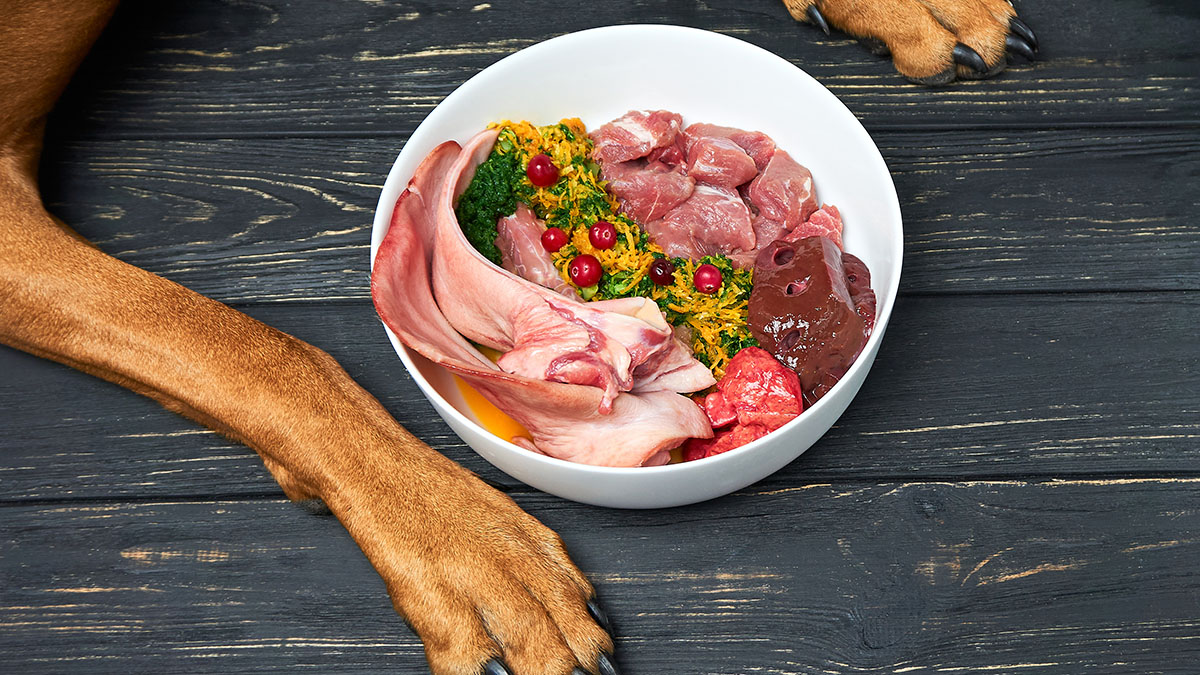
Unleash Fun and Adventure: Discover the Best Dog Friendly Hotels in Sarasota
February 7, 2024
The Essential Guide to Responsible Pet Ownership: How to Be the Best Pet Parent
April 25, 2024Are you concerned about your dog’s liver health? If so, incorporating a liver diet into their daily routine could be the key to improving their overall well-being. A nutritious and balanced diet is essential for promoting liver health in dogs, and it can have profound effects on their overall health and vitality.
The liver is a vital organ responsible for detoxification, metabolism, and the production of essential proteins. However, it is also susceptible to various conditions, including liver disease. A liver diet specifically designed for dogs can help support liver function and prevent further damage.
By incorporating nutrient-rich foods such as lean proteins, whole grains, fruits, and vegetables into your furry friend’s diet, you can provide the necessary vitamins, minerals, and antioxidants to support their liver health. These foods can help detoxify the liver, reduce inflammation, and boost their immune system.
In addition to a liver diet, it is important to consult with your veterinarian for proper diagnosis and treatment. Together, you can ensure that your dog receives the best care possible and maintains optimal liver health. So, don’t wait any longer – start prioritizing your dog’s liver health today and witness the positive impact it can have on their overall well-being.
The importance of nutrition for dogs
Proper nutrition is essential for dogs to thrive and maintain optimal health. Just like humans, dogs require a balanced diet that provides them with the necessary nutrients to support their bodily functions. A well-rounded diet can help improve their immune system, promote healthy growth and development, and prevent various health issues.
Nutrition plays a crucial role in supporting the overall well-being of dogs, including their liver health. The liver is responsible for filtering toxins, metabolizing nutrients, and producing essential proteins. When the liver is not functioning properly, it can lead to various health problems, including liver disease.
A diet that focuses on providing the right nutrients can help support liver function and prevent liver disease in dogs. By ensuring that your dog’s diet is rich in essential vitamins, minerals, and antioxidants, you can help promote liver health and overall vitality. A balanced diet is the foundation for a healthy and happy dog.
Understanding the role of the liver in your dog’s health
The liver is one of the most important organs in a dog’s body, and it performs a wide range of functions that are vital for their overall health and well-being. It is responsible for detoxifying the blood, metabolizing nutrients, storing vitamins and minerals, and producing essential proteins.
When the liver is functioning properly, it plays a crucial role in maintaining a healthy immune system, regulating blood sugar levels, and promoting proper digestion. However, when the liver becomes compromised, it can lead to serious health issues and impact your dog’s quality of life.
Liver disease in dogs can be caused by a variety of factors, including genetics, infections, toxins, and certain medications. It is important to be aware of the signs and symptoms of liver disease in dogs, which can include loss of appetite, weight loss, vomiting, excessive thirst, jaundice, and lethargy.
Proper nutrition, including a liver diet, can help support liver function and prevent further damage. By understanding the role of the liver in your dog’s health, you can take proactive steps to ensure their well-being and longevity.
Common liver problems in dogs
Liver problems can affect dogs of all breeds and ages. Understanding the common liver problems that dogs may encounter can help you identify potential issues and seek appropriate treatment. Some of the most common liver problems in dogs include:
- Hepatitis: Hepatitis is an inflammation of the liver that can be caused by infections, toxins, or an autoimmune response. It can lead to liver damage and impaired liver function if left untreated.
- Hepatic lipidosis: Also known as fatty liver disease, hepatic lipidosis occurs when excess fat accumulates in the liver. It can be caused by obesity, malnutrition, or certain medical conditions.
- Liver shunts: Liver shunts are abnormal blood vessels that divert blood flow away from the liver. This can lead to a buildup of toxins in the bloodstream and can be congenital or acquired.
- Liver cancer: Liver cancer can occur in dogs and can be either primary (originating in the liver) or secondary (spreading from other parts of the body). It can cause liver dysfunction and other serious health problems.
- Cirrhosis: Cirrhosis is a chronic condition where healthy liver tissue is replaced by scar tissue. It can be caused by chronic liver disease or long-term exposure to toxins.
Recognizing the signs of liver problems in dogs is crucial for early detection and treatment. Consult with your veterinarian if you notice any symptoms or abnormalities in your dog’s behavior or health.
Benefits of a liver diet for dogs
A liver diet tailored specifically for dogs can provide numerous benefits for their liver health and overall well-being. Here are some of the key benefits of incorporating a liver diet into your dog’s daily routine:
- Supports liver function: A liver diet is formulated to provide the necessary nutrients that support optimal liver function. It includes ingredients that are easily digestible and gentle on the liver, reducing the workload of the organ.
- Promotes detoxification: Certain foods included in a liver diet, such as cruciferous vegetables and antioxidants, can help detoxify the liver and eliminate toxins from the body. This can reduce the risk of liver damage and support overall liver health.
- Reduces inflammation: Inflammation can contribute to liver damage and impair liver function. A liver diet often includes anti-inflammatory ingredients, such as omega-3 fatty acids and turmeric, which can help reduce inflammation in the liver.
- Boosts the immune system: A strong immune system is essential for a dog’s overall health and well-being. A liver diet that includes immune-boosting ingredients, such as vitamin C and E, can help strengthen the immune system and protect against infections and diseases.
- Provides essential nutrients: A liver diet is typically rich in essential vitamins, minerals, and antioxidants that are beneficial for the liver and overall health. These nutrients can help support the body’s natural healing processes and promote vitality.
Incorporating a liver diet into your dog’s daily routine can provide these benefits and help prevent liver disease and other related health issues. However, it is important to consult with your veterinarian before making any dietary changes to ensure that it is appropriate for your dog’s specific needs.
Key components of a liver diet for dogs
A liver diet for dogs should focus on providing the necessary nutrients to support liver health and function. Here are some of the key components that should be included in a liver diet:
- Lean proteins: High-quality, lean proteins such as chicken, turkey, and fish are essential for dogs’ liver health. These proteins are easily digestible and provide essential amino acids that support liver function.
- Whole grains: Whole grains such as brown rice and oats are a good source of fiber and provide sustained energy for dogs. They are also beneficial for liver health as they help regulate blood sugar levels and support digestion.
- Fruits and vegetables: Fresh fruits and vegetables are packed with vitamins, minerals, and antioxidants that support liver health. Leafy greens, carrots, and berries are particularly beneficial for dogs’ liver health.
- Omega-3 fatty acids: Omega-3 fatty acids, found in fish oil and flaxseed, have anti-inflammatory properties and can help reduce inflammation in the liver. They also support brain health and promote a healthy coat and skin.
- Milk thistle: Milk thistle is a herb known for its liver-protective properties. It can help regenerate liver cells and promote liver detoxification. Milk thistle supplements can be added to your dog’s diet with the guidance of your veterinarian.
It is important to note that every dog is unique, and their dietary needs may vary. It is best to consult with your veterinarian to determine the specific components and proportions of a liver diet that would be most beneficial for your dog.
Foods to include in a liver diet for dogs
When designing a liver diet for your dog, it is important to include nutrient-rich foods that support liver health. Here are some foods that can be included in a liver diet for dogs:
- Lean proteins: Chicken, turkey, lean beef, and fish are excellent sources of lean proteins that provide essential amino acids for liver health. Opt for cooked or boiled meats and remove any excess fat or skin.
- Whole grains: Brown rice, oats, quinoa, and barley are whole grains that provide fiber and essential nutrients. These grains are gentle on the liver and help regulate blood sugar levels.
- Fresh fruits: Apples, bananas, blueberries, and watermelon are fruits that are safe for dogs and provide vitamins, minerals, and antioxidants. Be sure to remove any seeds or pits and offer them in moderation.
- Leafy greens: Spinach, kale, and broccoli are nutrient-dense leafy greens that are beneficial for liver health. Steam or lightly cook them before serving to make them easier to digest for your dog.
- Cruciferous vegetables: Cauliflower, Brussels sprouts, and cabbage are cruciferous vegetables that contain compounds that support liver detoxification. These vegetables can be steamed or boiled and served in small amounts.
- Omega-3 fatty acids: Fish oil and flaxseed are excellent sources of omega-3 fatty acids. They can be added to your dog’s diet in appropriate amounts to support liver health and reduce inflammation.
Remember to introduce new foods gradually and monitor your dog’s response. Not all dogs tolerate certain foods well, so it is important to observe any signs of allergies or digestive upset. Consult with your veterinarian for guidance on portion sizes and specific food recommendations for your dog.
Foods to avoid in a liver diet for dogs
While there are many foods that can benefit your dog’s liver health, there are also some foods that should be avoided, as they can be harmful to the liver. Here are some foods to avoid in a liver diet for dogs:
- High-fat foods: Excess fat can put a strain on the liver and contribute to fatty liver disease. Avoid feeding your dog fatty meats, fried foods, and high-fat dairy products.
- Processed foods: Processed foods, such as commercial dog treats and kibble, often contain additives, preservatives, and artificial ingredients that can be taxing on the liver. Opt for fresh, whole foods whenever possible.
- Grapes and raisins: Grapes and raisins can be toxic to dogs and can cause kidney damage, which can indirectly affect liver function. Avoid feeding your dog grapes or raisins in any form.
- Onions and garlic: Onions and garlic contain compounds that can be toxic to dogs and can cause damage to red blood cells. Avoid feeding your dog any foods that contain onions or garlic.
- Alcohol: Alcohol is extremely toxic to dogs and can cause severe liver damage. Keep all alcoholic beverages out of your dog’s reach and never intentionally give your dog alcohol.
- Chocolate: Chocolate contains theobromine, which is toxic to dogs and can cause liver damage. Avoid feeding your dog any chocolate or foods that contain chocolate.
It is important to be mindful of the foods you feed your dog, especially when it comes to their liver health. By avoiding foods that can be harmful to the liver and focusing on nutrient-rich, liver-friendly foods, you can help support your dog’s liver health and overall well-being.
Tips for transitioning your dog to a liver diet
Transitioning your dog to a new diet, such as a liver diet, requires some careful planning and gradual changes. Here are some tips to help you successfully transition your dog to a liver diet:
- Consult with your veterinarian: Before making any dietary changes, consult with your veterinarian to ensure that a liver diet is suitable for your dog. They can provide guidance on portion sizes, specific foods to include, and any necessary supplementation.
- Gradual transition: Start by gradually introducing small amounts of liver-friendly foods into your dog’s current diet. Mix a small portion of the new food with their regular food and gradually increase the proportion over several days or weeks.
- Monitor your dog’s response: Observe how your dog responds to the new diet. Look for any signs of allergies, digestive upset, or changes in their overall health. If you notice any adverse reactions, consult with your veterinarian for further guidance.
- Ensure freshness: When preparing homemade liver-friendly meals for your dog, ensure that all ingredients are fresh and of high quality. Avoid using ingredients that have expired or show signs of spoilage.
- Stick to a routine: Dogs thrive on routine, so establish a consistent feeding schedule for your dog. Feed them at the same time each day and provide measured portions to avoid overfeeding.
- Be patient: It may take some time for your dog to fully adjust to a liver diet. Be patient and give them time to adapt to the new flavors and textures. Offer plenty of praise and positive reinforcement during the transition period.
Remember, every dog is unique, and their response to a new diet may vary. Be attentive to their individual needs and consult with your veterinarian for personalized guidance.
Monitoring and assessing the effectiveness of a liver diet for your dog
Once you have transitioned your dog to a liver diet, it is important to monitor their response and assess the effectiveness of the diet in supporting their liver health. Here are some steps you can take to monitor and assess the effectiveness of a liver diet for your dog:
- Regular veterinary check-ups: Schedule regular check-ups with your veterinarian to monitor your dog’s overall health and liver function. They can perform blood tests and other diagnostic procedures to evaluate the effectiveness of the liver diet.
- Observe changes in behavior and health: Pay attention to any changes in your dog’s behavior, appetite, energy levels, and coat condition. These can be indicators of their overall health and well-being, including their liver health.
- Monitor stool consistency: The consistency and color of your dog’s stool can provide insights into their digestive health. Be attentive to any changes in stool consistency, as it can indicate underlying issues or dietary imbalances.
- Maintain a food diary: Keep a record of the foods you feed your dog




